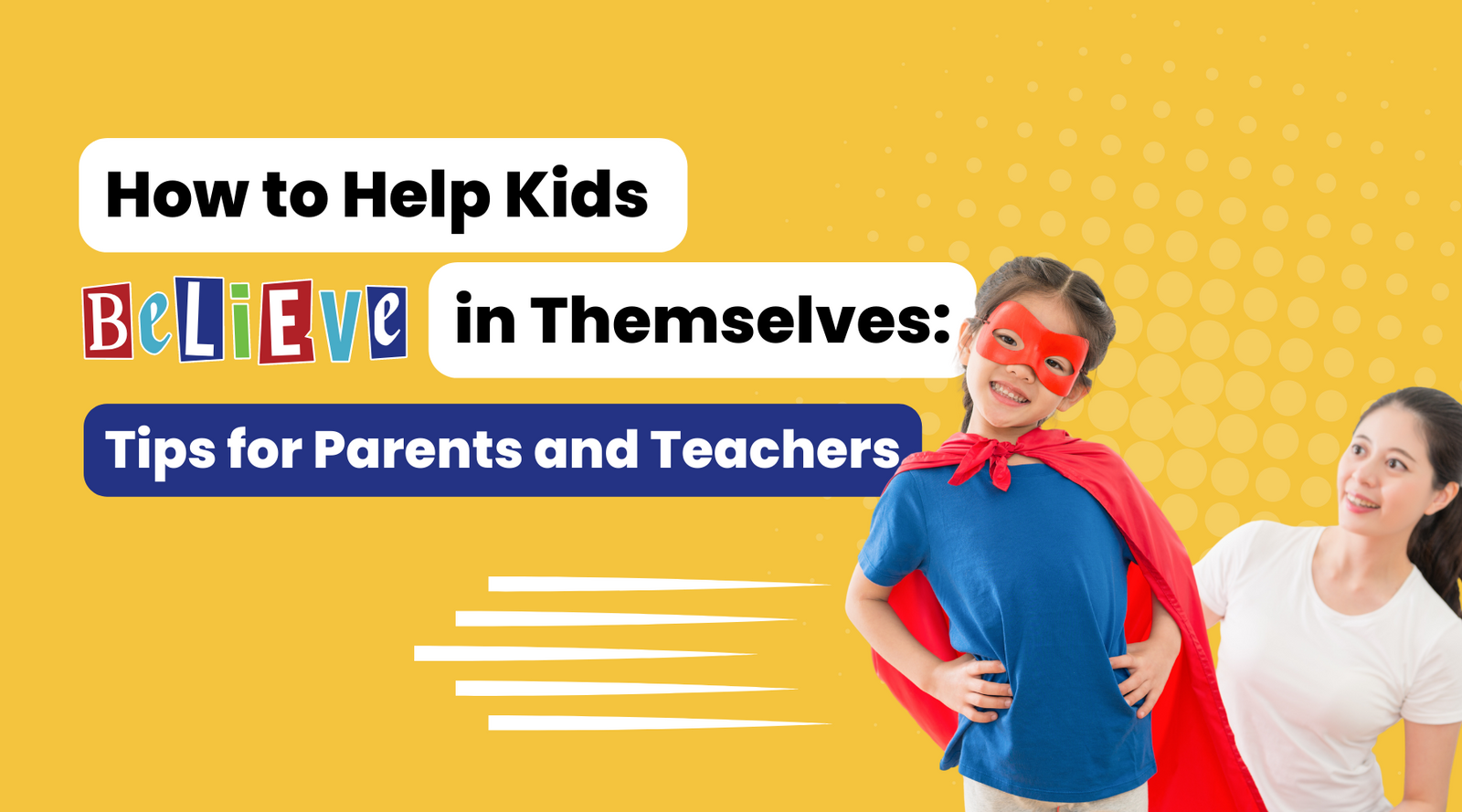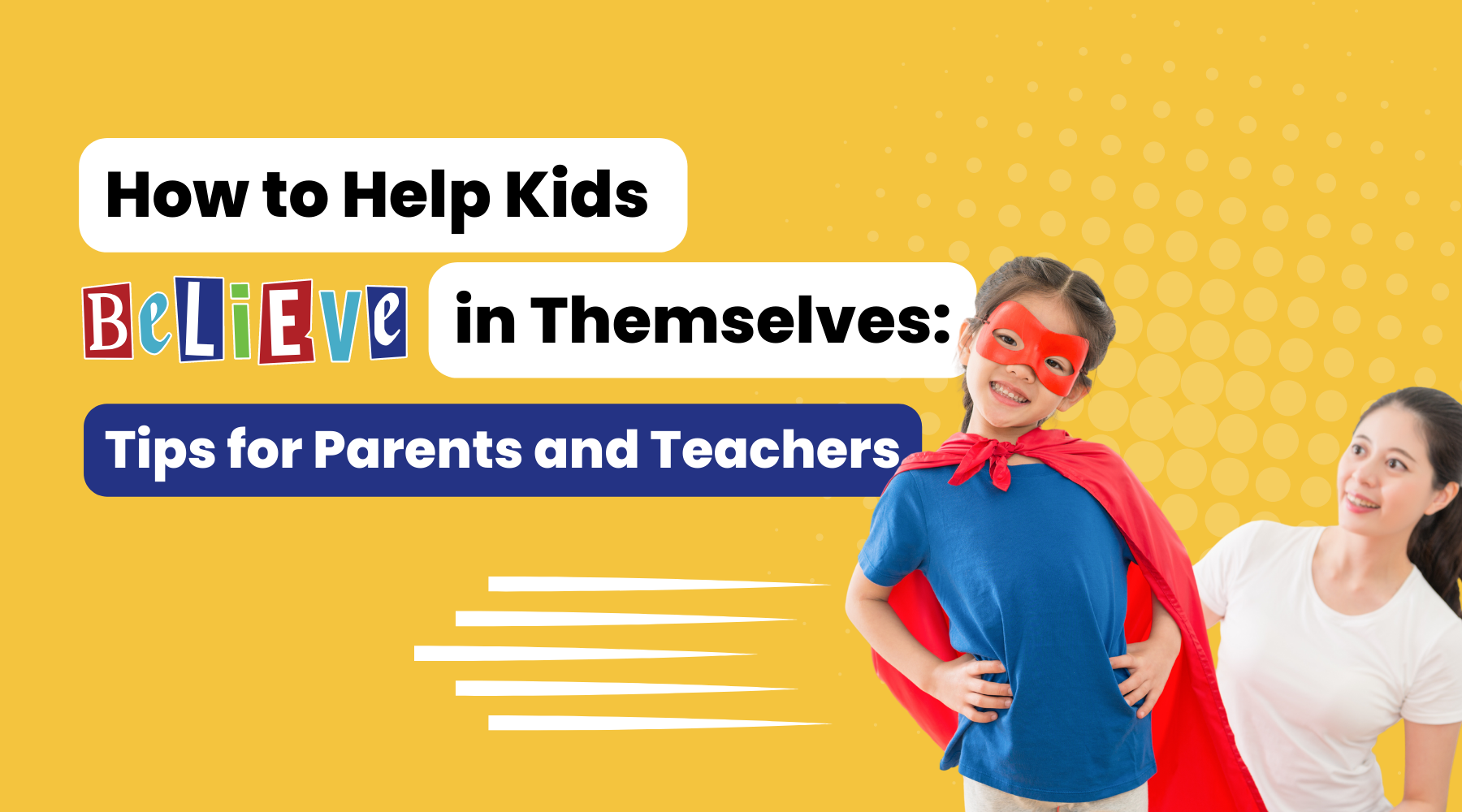How to Help Kids Believe in Themselves: Tips for Parents and Teachers

Success and pleasure in life are built on one's ability to believe in oneself. It entails believing in your skills and being assured that you can accomplish your objectives. Children who learn to believe in themselves are more likely to succeed and have better general wellness. You may play a significant part in assisting your child in developing this important quality as a parent or teacher.
Belief in oneself is essential for the development of healthy and successful young people. Children who believe in themselves are more likely to take on new challenges, recover from setbacks, and persevere in the face of adversity. This approach also helps with mental health and overall life satisfaction.
So how do you encourage children to develop this highly prized quality? The following 10 suggestions will help your youngster develop self-confidence:
1) Encourage children's curiosity by asking questions instead of delivering answers:
Children are inherently inquisitive and eager to learn about their surroundings. It is crucial for parents and instructors to foster this curiosity by asking probing questions rather than simply offering answers. You may help children explore their thoughts and build their critical thinking skills by asking open-ended questions.
2) With love and respect, communicate with and listen to young people:
Building healthy relationships with children requires effective communication. It is critical to speak with children in a courteous, empathic, and non-judgmental manner. This is attentively listening to them and acknowledging their emotions and points of view. Children are more likely to trust and open up to you if they feel heard and understood.
3) Show your children that you believe in them by doing the following:
As previously stated, displaying faith in your child is critical in assisting them in developing self-belief. When you demonstrate to your child that you believe in their abilities, ideas, and dreams, they are more likely to believe in themselves. You can demonstrate your faith in them by praising, encouraging, and supporting them.
4) Provide specific, precise, and honest (but kind) feedback:
Feedback is necessary for growth and development, but it must be given in a constructive and helpful manner. When providing feedback, it is critical to focus on the facts rather than making sweeping, emotional remarks. This allows kids to grasp what they need to work on without feeling insulted or disheartened.
5) Have faith in your child:
Building great relationships with children requires a high level of trust. Trusting your child shows that you believe in their potential and are willing to grant them autonomy. This aids in the development of their decision-making abilities and sense of responsibility.
6) Give your child a compliment:
Praise can be a powerful motivator for youngsters to believe in themselves. Praise for your child's efforts, accomplishments, and skills enhances their self-esteem and inspires them to continue working towards their goals. It is critical to provide specific, genuine praise that focuses on their efforts rather than just their results.
7) Allow your child to take safe risks:
Risk-taking is necessary for personal growth and development, but it is critical to ensure that the risks that children take are healthy and safe. Allowing your child to take healthy risks aids in the development of problem-solving abilities, resilience, and a sense of independence.
8) Encourage them to pursue their passions (completely):
Children are more likely to develop a sense of purpose and passion when they are encouraged to pursue their interests. Supporting their hobbies allows them to gain confidence and improve skills in areas that they are enthusiastic about.
9) Encourage them to experiment:
Trying new things allows children to improve their skills, discover new interests, and gain confidence. You may help children develop problem-solving abilities, adaptability, and resilience by encouraging them to move outside their comfort zone.
10) Assist children in discovering their passion:
Children who discover their passion are more likely to have a feeling of purpose and direction in life. As parents and teachers, we must encourage our children to pursue their interests and passions by giving them opportunity to try new things and by supporting their efforts.
You may assist your youngster build self-belief and achieve their goals by using these ten ways. It's crucial to remember that developing self-confidence requires time and regular effort, but the benefits are well worth the effort. Instilling confidence in youngsters sets them up for success and contributes to their general well-being.
There are numerous advantages to teaching youngsters to believe in themselves. They foster resilience, confidence, and self-esteem, all of which contribute to improved mental health and overall well-being. Believing in oneself also aids in the development of a growth mentality in youngsters, which means they are more inclined to persevere through problems and embrace learning opportunities.
If you're seeking for more tools to assist your child acquire this vital skill, consider reading "The Land of Can." This interactive book teaches children about the power of positive thinking and inspires them to believe in themselves. It offers exercises and prompts to help children discover their own skills and abilities. Visit the book page to learn more and to get your copy today.





Leave a comment